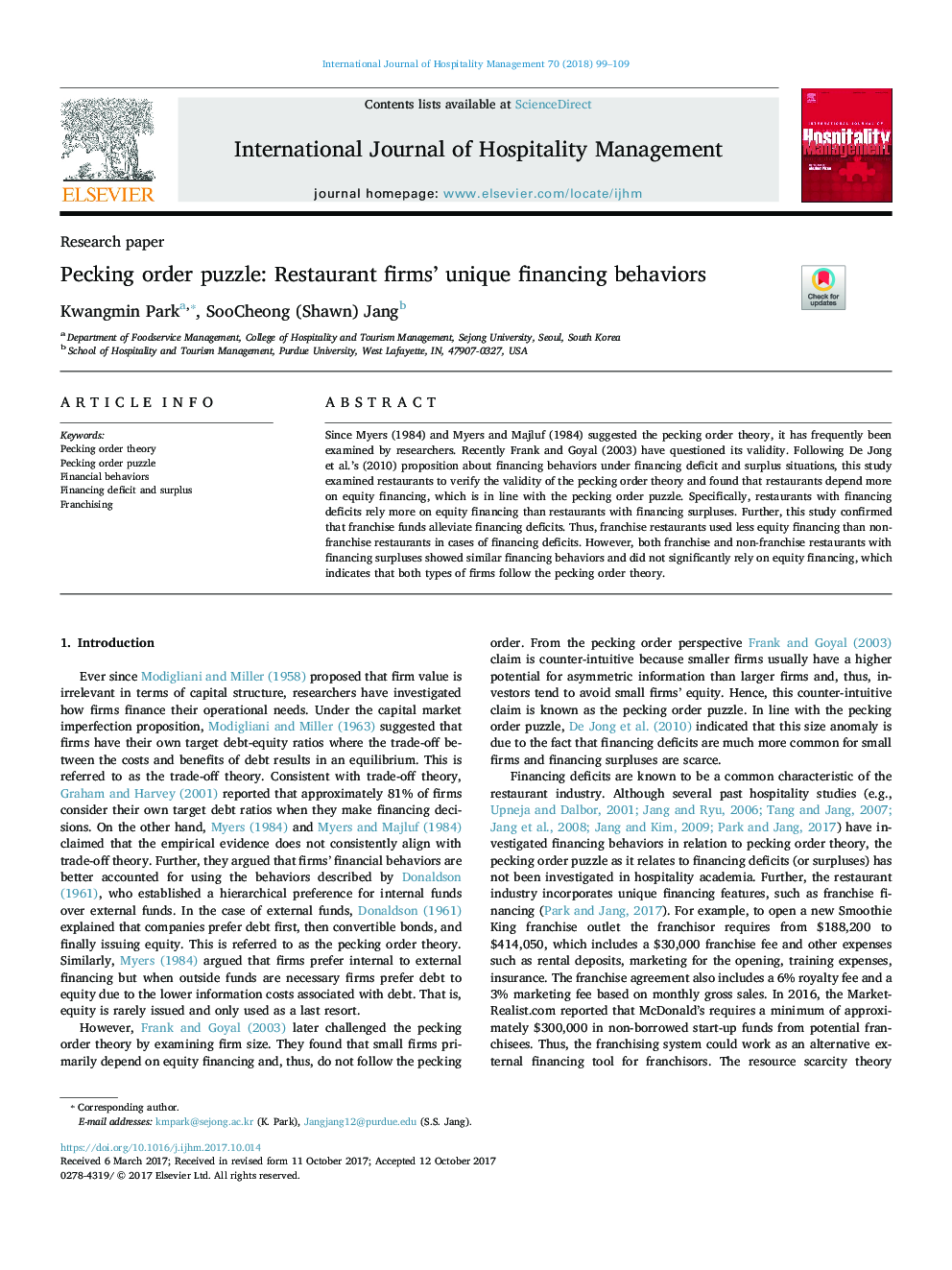| Article ID | Journal | Published Year | Pages | File Type |
|---|---|---|---|---|
| 7419100 | International Journal of Hospitality Management | 2018 | 11 Pages |
Abstract
Since Myers (1984) and Myers and Majluf (1984) suggested the pecking order theory, it has frequently been examined by researchers. Recently Frank and Goyal (2003) have questioned its validity. Following De Jong et al.'s (2010) proposition about financing behaviors under financing deficit and surplus situations, this study examined restaurants to verify the validity of the pecking order theory and found that restaurants depend more on equity financing, which is in line with the pecking order puzzle. Specifically, restaurants with financing deficits rely more on equity financing than restaurants with financing surpluses. Further, this study confirmed that franchise funds alleviate financing deficits. Thus, franchise restaurants used less equity financing than non-franchise restaurants in cases of financing deficits. However, both franchise and non-franchise restaurants with financing surpluses showed similar financing behaviors and did not significantly rely on equity financing, which indicates that both types of firms follow the pecking order theory.
Keywords
Related Topics
Social Sciences and Humanities
Business, Management and Accounting
Strategy and Management
Authors
Kwangmin Park, SooCheong (Shawn) Jang,
